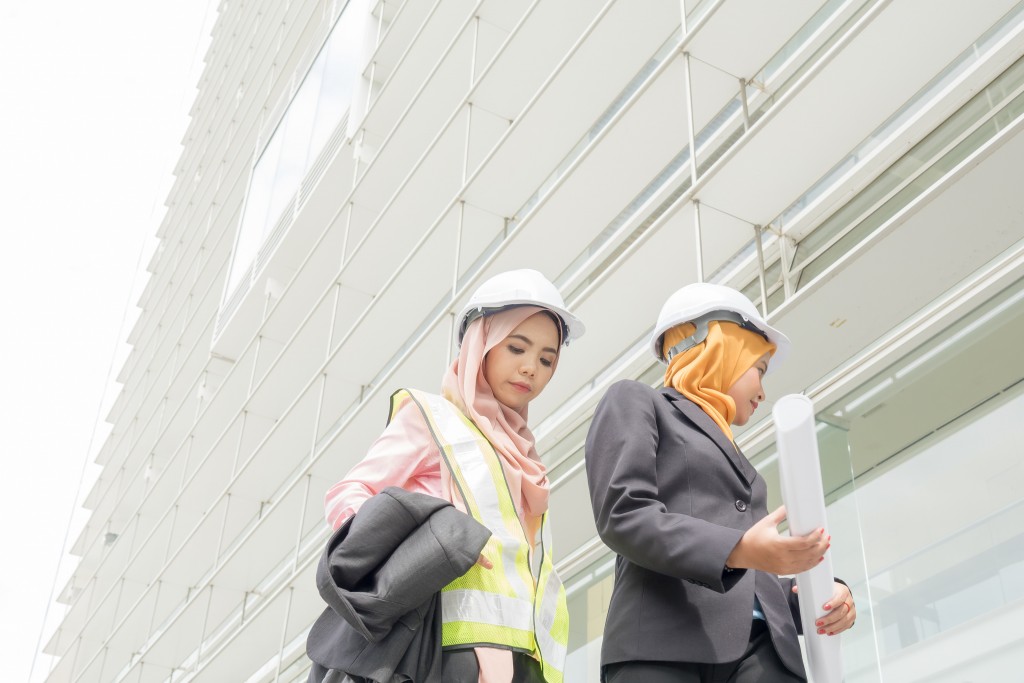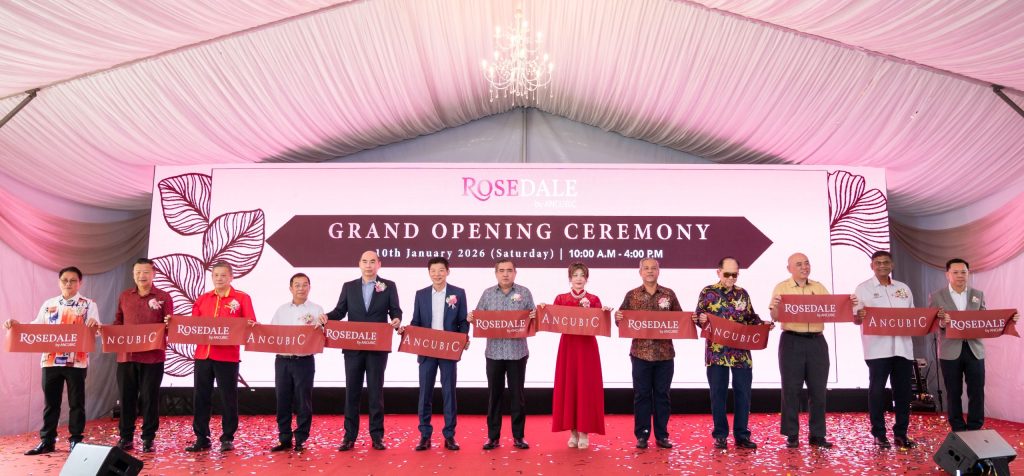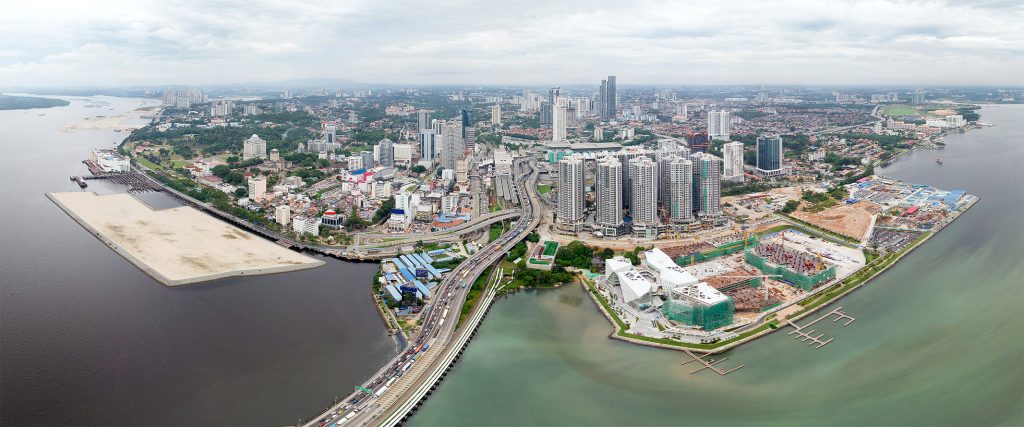Community and support is important in the face of challenges
By Yanika Liew
Construction has long been regarded as a demanding and labour-intensive field, yet women have played significant roles in shaping its landscape throughout history. Women's involvement in the construction sector dates back even to the mediaeval ages, underscoring their enduring presence and contributions to the industry.
Bringing to mind the Kongsi women of pre-independence Malaya, Prihatin Ehsan Holdings Sdn Bhd president and group managing director Datin Dr Hartini Osman pointed out that women are not an uncommon presence in the construction industry, from female labourers to lawyers, architects, developers and real estate agents. Despite this, there are still challenges to their accessibility and opportunity in modern Malaysia.
“Women in the construction industry often encounter various challenges, including gender bias, stereotypes, and a lack of representation at leadership levels. Additionally, there can be difficulties in gaining respect and acceptance in a traditionally male-dominated field, facing unequal opportunities for career advancement, and encountering workplace environments that may not always be welcoming or inclusive,” Women in Construction Malaysia (WIBM) president Datuk Nafisah Radin said.
“Personally, I believe in leveraging my skills, expertise and determination to overcome these challenges. By continuously demonstrating my capabilities, professionalism, and commitment to excellence, I aim to challenge stereotypes and break down barriers,” she said.
Additionally, she noted that building a strong support network of colleagues, mentors and allies has been invaluable in navigating these obstacles and finding opportunities for growth and advancement.
Through her work with NR Design Group and WIBM, she aimed to provide support and resources for women in the construction industry. This included mentorship programs, networking opportunities, skills development workshops and advocating for policies that promote diversity and inclusion within the organisation and the broader industry.
“By fostering a supportive and inclusive culture, we aim to empower women to thrive in their careers and overcome challenges they may face,” Nafisah said.
“To be successful in the field of construction, women have to be knowledgeable foremost but having a strong personality and confidence helps, especially to allay any misgivings others might have in our skills,” Almaz Architect Sdn Bhd managing director Almaz Salma said.
Through knowledge in their discipline, they would be able to dispense their skills to the best of their ability thus gaining respect from all quarters.
When asked for comment regarding the progress of women in the construction industry, Master Builders Association Malaysia (MBAM) president Oliver HC Wee noted that the physically demanding jobs such as site supervisors were still predominantly held by men, however, there were still many women participating in the industry.
“With BIM operations up and going, we have observed a great number of engineers, designers and planners who are women and directly involved in the construction process. Evidently, roles such as claim specialists and construction lawyers are held by women and areas such as procurement and human resources in construction are even led by them,” Wee said.
He pointed out the work that WIBM had done to facilitate the participation of women in the construction sector and hoped to continue seeing an increasing trend of women's participation in the construction industry in the years to come.
Industry-wide support
Nafisah noted that industry-wide changes were necessary to create a more inclusive space for women in construction.
These initiatives would include actively promoting gender diversity and inclusion, such as implementing equal pay policies, increasing the representation of women in leadership positions, and providing opportunities for mentorship and career advancement. Additionally, addressing systemic issues such as workplace harassment and discrimination is crucial for fostering a more welcoming and respectful environment for women in the industry.
“It's important for all stakeholders – companies, policymakers, industry organisations, and individuals – to collaborate and take proactive steps towards building a more equitable and inclusive future for women in construction,” Nafisah said.
In addition, Almaz noted that practical infrastructure and support systems were crucial to women in the industry.
“Whatever changes that will help women in construction will help other women in other fields. Good and affordable childcare services will definitely put women in construction at ease knowing that their children are in safe hands while they work long hours. Women-only facilities on site, such as the toilet, and rest area, would make work on site a lot more comfortable,” she said.
These changes would create a supportive work environment for all, not just women. A lack of amenities to support female workers was a detriment to the workforce, Hartini agreed.
“The right working suit, PPE and safety equipment for women employees should be provided including women-friendly restrooms,” Hartini said.
Family obligations
Wong and Partners partner Janice Tay, who heads the international arbitration, construction and engineering team, pointed out the differences between the reality of obligations for women.
She noted that as a woman, there was tension with how one could present themselves while balancing possible unconscious harassment and bias, not only from men but fellow women.
“As a mother of two young kids, there is sometimes a lack of facilities catering for motherhood, such as nursing rooms, courts, arbitration centres, client offices, site visits and some fellow mothers can feel embarrassed to ask,” Tay said.
“As a mentor, I see that it can be tough juggling family and career due to the emotional, physical and financial demands that we women take on. There is also a lot of stress and long hours involved, and women may lack the self-confidence to pursue and persevere in this industry,” she added.
Hartini pointed out that organisations could also advocate for fair pay and equal access to participate in training and development programs, and implement policies that protect against harassment and discrimination while supporting organisations and initiatives that empower women in construction.
“Building a more equitable and inclusive construction industry requires collective action. An organisation can support female construction workers by challenging our own biases and stereotypes about gender roles in construction,” she said.
“With a widening labour gap in the construction industry, attracting and retaining female workers can help bridge the skill shortage. The worker should exhibit fine attention to detail and quality focus and show tenacity and resilience despite the physical and mental toughness the job can demand,” she added.
Hartini also pointed out that all workers need to be trained in how to respond to sexual harassment and make sure everybody is aware of their rights. Report instances of condescension, sexist comments, and even overt harassment. This not only undermines morale but also safety and productivity in the workplace.
Leveraging legal protections would ensure equal pay for all workers on federal construction projects regardless of gender. Hartini noted that understanding and utilising such legal protections empowers women to hold employers accountable for discriminatory practices.
“Women in the construction industry may encounter scepticism or doubt from clients about their capabilities and experience, based on gender stereotypes. They may need to work harder and put in more effort to prove their competence and expertise, overcoming preconceived notions about women’s capabilities in the construction industry,” Verona Design director Juita Wan Hashim said.
“Women in the construction industry who are running on their own might face challenges in getting bigger scales and securing high-profile projects. Clients and stakeholders in the construction industry may be risk–averse and hesitant to award high–profile projects to smaller firms, including those owned by women,” she pointed out.
In her view, women-owned businesses may face intense competition from larger, more established male competitors. They may need to overcome the perception of risk and uncertainty through strategic partnerships and innovative approaches to build trust with clients.
They would have to work double or triple effort to overcome stereotypes and biases, demonstrating their expertise, track record and ability to deliver on large-scale projects.
“To address the challenges and support for women in the construction industry, stakeholders across the industry including government agencies, and industry associations, need to take proactive steps to promote gender equality, diversity and inclusion,” Juita said.
“This may include advocacy for policy changes to level the playing field for women-owned businesses in the construction sector, providing targeted support programs, mentorship opportunities and industry-wide initiatives to promote diversity and inclusion,” she added.
Work-life balance
“Women need to realise that they can find a balance between work and family life. They need to see that men can be partners in life and business; and that the only path to success is cooperation,” Homefield Real Estate Sdn Bhd director Munirah Mohammad, who primarily engages in construction, said.
Balancing work demands with family obligations can be challenging for women in the industry, especially when there are multiple roles to fulfil.
“We are only given 24 hours in a day and there is no way that we can accomplish our task as a wife, mother, leader, sisters and friends smoothly daily,” Munirah said.
“Therefore, we have to learn to let go and delegate the roles. Delegating responsibilities can be a helpful strategy to ease the workload and ensure that all necessary tasks are completed. This could involve seeking help from your husband, children and family members or hiring a caregiver or assistant,” she explained.
For working mothers, it was important to prioritise and find ways to manage time effectively, while also being realistic about what can be accomplished in a given day.
It was difficult, Munirah admitted. She described the way she would burnout in the past when she ran through endless appointments, feeling defeated and stressed, however, she noted that she was blessed to have a supportive husband and family, working hard to provide for her children.
“The women in construction often rely on networking and relationship building, which can be more difficult for women who may have fewer opportunities to network or may feel uncomfortable in male-dominated networking environments,” Munirah said.
Her advice was to join industry associations which centred around female professionals, as well as attend women-focused networking events where women can connect with other women in the industry.
They could also utilise social media, seek out mentorship opportunities and more.
“I think it’s important to be kind to yourself, and having support at home and work is crucial. Speak up about your needs, for example, if you need space or time to pump because awareness and education can be helpful to other women in the future or those who may be too shy to ask,” Tay said.
“Also remember to be kind to others, and reasonable. One never knows the hidden challenges faced by others. Give others the benefit of the doubt, I have found many women and men to be kind, supportive and understanding,” she added.

“We aim to empower women to thrive in their careers and overcome challenges they may face,” Nafisah said.

“Building a more equitable and inclusive construction industry requires collective action,” Hartini said.
Stay ahead of the crowd and enjoy fresh insights on real estate, property development, and lifestyle trends when you subscribe to our newsletter and follow us on social media.
















































